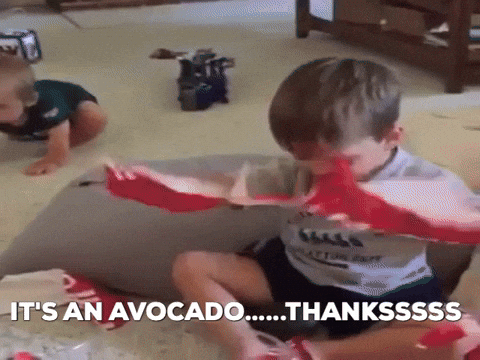- Acronym
- Posts
- EOD: AI’s homogenization problem in the context of gift giving
EOD: AI’s homogenization problem in the context of gift giving
Could more AI in retail mean less intimate gift giving?
The World’s Most Wearable AI
Limitless is your new superpower - an AI-powered pendant that captures and remembers every conversation, insight, and idea you encounter throughout your day.
Built for tech leaders who need clarity without the clutter, Limitless automatically transcribes and summarizes meetings, identifies speakers, and delivers actionable notes right to your fingertips. It’s securely encrypted, incredibly intuitive, and endlessly efficient.
Order now and reclaim your mental bandwidth today.
I’m all about nuanced conversations. As you come off of this ad for a wearable AI for busy professionals, I want to talk about a different kind of AI: The kind that guides you towards products you can purchase.
I recently covered Walmart’s latest AI innovations for CNBC, which showcased a lot of neat ways AI is being used on the back-end of retail (for example, in warehouse and shipping logistics). But it’s also being used on the front-end with Sparky, their new AI shopping assistant that helps consumers find juuuust the right gift for that someone in their lives.
As the ever-so-stressful holiday shopping season approaches, agentic AI (an AI tool that can accomplish a specific goal) is poised to influence $1+ trillion in online spending, according to recent research from Boston Consulting Group (BCG). Their report adds that a whopping 81% of US consumers expect to use these tools to help them shop, which will shape more than half of all online purchases in the near future.
Aside from the environmental impact of AI, here’s where my mind went when I read that:
Research shows AI outputs are slowly morphing to become less creative and more homogenized.
An experiment conducted by Harvard’s Digital Data Design institute and BCG showed AI leads to more homogenized results in the workplace.
MIT research shows a “cognitive cost” of relying on AI to perform previously manual tasks, with subjects who used ChatGPT demonstrating less brain activity when completing a task.
I see a couple of issues here. First, retailers could have difficulty standing out in a competitive market since AI dissolves their uniqueness.
Second, consumers could lose out on meaningful intimacy in the gift-giving process.
“AI is a technology of averages,” wrote New Yorker staff writer Kyle Chayka.
As Walmart, Target and other big box retailers continue to integrate customer-facing AI solutions, there are some ways that consumers will benefit (smart digital try-on technology for better sizing, even gift ideas for those hard-to-shop-for loved ones).
And still, there are ways in which we may suffer, including homogenized gift ideas that turn what could be intimate moments into a formulaic trend.
(Inderpreet Batra, Managing Director & Senior Partner at BCG, gave a more hopeful take when I pressed him on this: “Consumers are likely to rely on AI for familiar, low-risk, repeat purchases like household goods or personal care items, where convenience is king.” But still, let’s have this conversation.)
Former US surgeon general Vivek Murthy declared a widespread loneliness epidemic in 2023. Nearly a third (29%) of people ages 30-44 (my age group) said they were frequently or always lonely, a state of mind defined by Murthy as “a subjective distressing experience that results from perceived isolation or inadequate meaningful connections.”
The holiday season is a crucial time to combat loneliness across demographics. While spending time with someone may be more valuable for fighting loneliness than simply giving them a gift, it’s no secret that a well-thought-out gift can show you really know someone and, moreover, really care.
As I face the first holiday season after my brother’s suicide, I guess my argument here is this:
✔️ Do what all the tech experts call keeping the human in the loop.
❌ Don’t take AI gift suggestions at face value. Question the outputs.
If you choose to use these solutions, consider them a jumping off point for further ideation, a brainstorm to help you remember why you love someone. Then get them something unique, meaningful, truly heartfelt. Let this be a reminder that a good gift doesn’t have to be expensive or serve to boost the spending economy (that is not your responsibility!!!). Some of the best gifts I’ve given and received have been from thrift stores, from craft fairs or homemade.
Bear in mind the secrets and inside jokes you have with someone. Prove that you know them. Then spend time with them anyway.

Thanks,




Reply